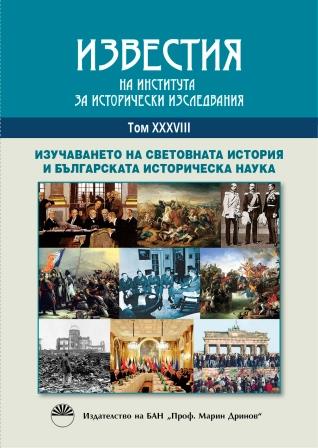Хабсбургското разузнаване в Османската империя през XVI век
Habsburg Intelligence in the Ottoman Empire in the 16th Century
Author(s): Aneliya StoyanovaSubject(s): History, Political history, Modern Age, 16th Century
Published by: Институт за исторически изследвания - Българска академия на науките
Keywords: Habsburg-Ottoman relations; 16th century espionage; Early modern diplomacy; Habsburg intelligence
Summary/Abstract: In the 16th century, with the escalation of traditional political confrontations over hegemony in Europe and the emergence of new military and economic challenges “from outside”, beyond the borders of the Old Continent, political decision-making needed more than ever to ensure a constant flow of up-to-date information. This required organizing and maintaining networks of loyal contacts to provide it, and adopting the most efficient methods of work. One of the main functions of diplomatic representatives in the Early Modern period was to gather and forward useful confidential information. The need to gather information to be used later in the policy-making process made espionage and its main weapon, cryptography, a most valuable ally to diplomacy. Of the two branches of the Habsburg dynasty in the second half of the 16th century, only the Austrian one maintained active diplomatic relations with the Ottoman Empire. After the signing of the first written Habsburg-Ottoman peace treaty in 1547, the Austrian Habsburgs obtained the right to send a permanent resident to the Ottoman capital. This was essential for the development of the Habsburg-Ottoman diplomatic relations, since the permanent representation offered new and significantly broader perspectives for getting to know the other and gathering a variety of useful information. The Spanish Habsburgs, on the other hand, managed to build an extremely wide network of spies and informants on the territory of the Ottoman Empire, which provided a constant flow of information to Madrid. They also relied on information arriving via Vienna and Italy. In the absence of official diplomatic contacts, it was the professional spies who provided the necessary channels for communication between the Spanish and the Ottoman Empire.
Journal: Известия на Института за исторически изследвания
- Issue Year: 38/2022
- Issue No: 2
- Page Range: 337-357
- Page Count: 21
- Language: Bulgarian
- Content File-PDF

